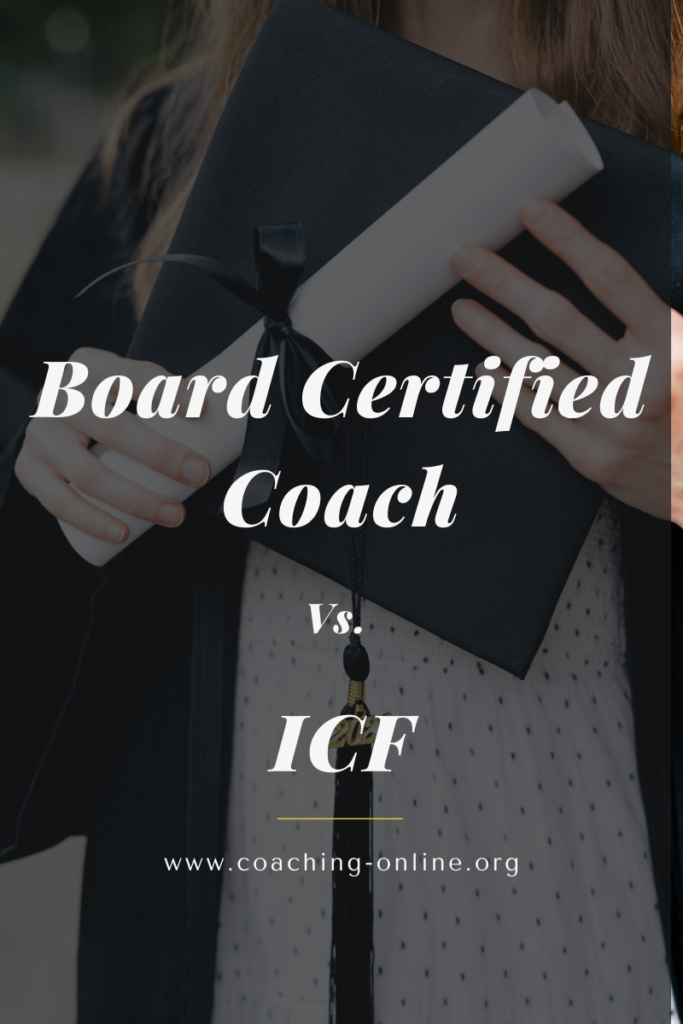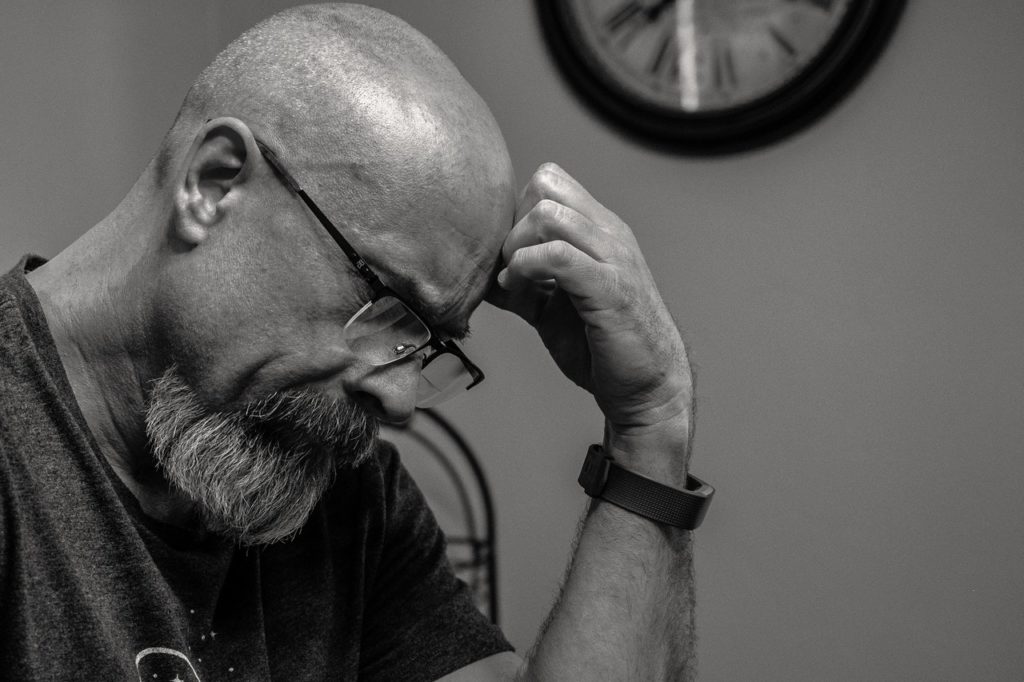You’ve been thinking of becoming a life coach. You’ve read several self-help books, have watched multiple coaching videos, and are now ready to take the plunge into the coaching world.
However, before you start your coaching profession, you need to get certified. But which certification should you go for? Board Certified Coach or ICF?
We answer that in this article. In this post, we discuss the differences between Board Certified Coach and ICF accreditation.
Here’s what you’ll learn!
But before we get into the differences, let’s first understand why it’s essential to obtain accreditation.
Advantages of Coaching Certification
Would you go to a doctor who wasn’t certified? Would you trust a dentist who wasn’t a member of any professional body?
I bet not!
This is why certification is essential.
Certification gives you credibility, which is essential for convincing clients and organizations that you know what you’re doing.
It also becomes easier to expand your client base as an accredited coach since people are more likely to trust you.
Since you must complete several hours of training and field experience before getting certified, accreditation also gives you the experience to deal with different situations and personalities.
And that’s not all!
Getting certified also provides you access to coaching resources, publications, updates, and news about any opportunities.
Accreditation also connects you to thousands of coaches with the same certification; therefore, providing a chance to network, connect and learn from other professionals.
Now that you know the advantages of accreditation, let’s look at the differences between the two most prominent coaching accreditation programs.

Board Certified Coach Vs. ICF
Before we go into details about these two accreditation programs, let’s first understand what they are:
What Is A Board Certified Coach Credential?
Designed by the Center for Credentialing & Education (CCE), a board-certified coach credential indicates that a coach has completed the necessary training and education to become a professional.
With a BCC certification, your professional identity as a coach is solidified, making you more marketable to clients and organizations.
To get a BCC accreditation, a coach has to go through an extensive range of coursework and pass a psychometrically sound coach-specific examination.
Related: Best Life Coach Certifications Online ICF Accredited
What is The International Coach Federation (ICF)?
Also referred to as the gold standard of coaching, the International Coach Federation (ICF) is a global association of coaches that campaigns and enforce professional coaching standards.
It’s the largest organization of professional and highly trained coaches globally, with over 42000 members in 147 countries.
ICF provides three accreditation levels, namely
- Associate Certified Coach (ACC)
- Professional Certified Coach (PCC)
- Master Certified Coach
How to Become a BCC Accredited Coach
Step One: Meet Entry Requirements
Before you pursue BCC certification, you need to have met several requirements. These include having achieved one of the following:
- Masters or Ph.D. in counseling.
- Masters or Doctoral degree in social work, education, health, or business.
- Bachelor’s degree or higher in any field.
- Recognized coaching credential and a bachelor’s degree or higher in any field.
- At least 2,500 hours of experience over five years and a bachelor’s degree or higher in any field.
Step Two: Attend a CCE Approved Training Program
If you’ve met any of the above requirements, you’ll need to go through extensive coursework from a CCE-Approved Board Certified Coach Training Program before you can become an accredited coach.
Depending on your experience, you’ll have to attend 30-120 hours of training.
If you have experience in social work, education, or the health industry, you’ll attend fewer hours of training. People with zero experience in social sciences have to attend more hours of training.
Other than training, you’ll also have to complete over 30 hours of field experience.
Related: ICF Definition Of Coaching – Important Facts
Step Three: Earn a Professional Endorsement from One of Your Peers.
Before becoming a BCC accredited coach, you’ll have to earn a professional reference from another BCC certified coach.
Step Four: Pass the Board Certified Coach Exam
You’ll also need to pass a psychometrically sound coach-specific examination and commit to continuous learning and improvement.
Specialty Designation under BCC
Other than regular coaching certification, the CCE also offers BCC applicants a chance to apply for specialty designation.
If you’re an executive, corporate, business or leadership coach, you can apply to get a BCC business coach accreditation.
Other specialties include:
- Health and Wellness Coach
- Career Coach
- Personal or Life Coach
You must also prove to the board that you’ve attained 30 work hours in your chosen specialization field to get this specialty designation.
You also must pay a $30 specialist review fee for every designation.
Board Certified Coach Training Providers
As mentioned above, you’ll need to attend a CCE-Approved Board Certified Coach Training Program before you can become an accredited coach.
But what are some of these institutions? We cover that in this section.
The Institute for Life Coach Training (ILCT)
Founded in 1998, the Institute for Life Coach Training is one of the leading international coach training provider.
Initially started with a goal is to train counselors, psychologists, and social workers, ILCT has used this background to develop one of the most extensive coaching programs.
ILCT offers both ICF and BCC certifications.
And here’s the best part!
Since classes are online, you can attend ILCT training from anywhere in the world.
Coach Praxis
Originally launched as the Academic Coach Project, Coach Praxis is a coaching training platform that aims at equipping educators with life coaching skills.
The program offers a 60-hour course, which on completion leads to certification as a board-certified coach.
With Coach Praxis, you can attend either live or online classes.
Adler International Learning, Inc.
Adler is both an ICF and BCC accredited institution.
The program offers a 30, 60, and 120-hour coaching course.
Academy of Choice
Built on the foundation of Choice Theory (the work of Dr. William Glasser’s), Academy of choice is a CCE-approved BCC coach training provider that offers coaching training in three main courses.
These are the 30, 60, and 120-hour choice coaching courses.
Center for Coaching Excellence
While it mainly offers ICF accredited courses, the Center for Coaching Excellence has a 35-hour CCE-approved BCC course called Essential Coach Training.
Related: 28 Steps – ICF Code of Ethics
How to Become an ICF Accredited Coach
Step One: Attend ICF Certification Course
To become eligible for International Coach Federation accreditation, you’ll need to have completed any ICF certification course.
And unlike the Board Certified Coach, joining an ICF certification course doesn’t require any previous experience.
Anyone looking to improve the lives of others around them can join.
And here’s the best part!
You can get your ICF certification online or through a classroom training program. With an ICF certification, you can then apply for ICF accreditation.

Step Two: Complete Required ICF Accreditation Training and Practice Hours
As mentioned above, ICF offers three types of accreditation. These are:
- Associate Certified Coach (ACC)
- Professional Certified Coach (PCC)
- Master Certified Coach
Requirements to get an Associate Certified Coach (ACC) Accreditation.
You’ll need to attend at least 60 hours of coach-specific training.
With a coaching certificate, you’ll then need to complete the required coaching experience hours.
This is usually 100 hours of coaching experience with at least eight clients. Out of these 100 hours, 75 hours are paid, while 25 hours must be completed 18 months before applying for ICF accreditation.
To prove that you completed your 100 hours, you’ll need to fill the International coach federation coaching log, which entails noting the name, emails, and hours achieved for each of the eight clients.
Requirements to get a Professional Certified Coach (PCC) Accreditation.
You’ll first need to complete more than 125 hours of coaching training.
Once training is done, you’ll need to complete over 500 hours of coaching experience with clients. Just like an ACC, you’ll need to fill in a coaching log with details of each client.
Requirements to get a Master Certified Coach (MCC) Accreditation.
This is the highest accreditation level for any ICF coach.
To become a master certified coach, you’ll need to complete over 200 hours of coaching training and more than 2500 hours of coaching practice with clients.
Step Three: Partner With A Mentor Coach
Whether you’re working to become an ACC, PCC, or MCC, you’ll need to attain 10 hours of direct mentoring from a mentor coach who has the same credential or higher.
This has to be done within a minimum of three months and doesn’t include time spent observing your coaching sessions.
And the best part!
Mentoring doesn’t have to be from one mentor coach. You can receive mentoring from different individuals as long as it meets the 10-hour requirements.
You could also get mentoring as a group. However, group mentoring only accounts for seven of the required ten hours. You’ll have to get another three hours of individual mentoring to achieve the required 10 hours.
While your chosen accreditation school may offer mentoring services, you can also contact ICF and request a mentor coach.
Step Four: Pass ICF Accreditation Online Assessment
Once you’ve completed the required training, coaching experience hours, and mentoring time, it’s time to take the ICF accreditation exam.
The online test is a proctored, multiple-choice assessment that covers topics related to ethics, competencies of coaches, and ICF coaching standards.
To pass the assessment, you’ll also need to pass a performance evaluation which entails submitting an audio recording and transcript of one of your coaching sessions.
ICF Training Providers
Coaching Training Alliance
Coaching Training Alliance is a coaching training company that has been in operation for more than 20 years.
They are an award-winning ICF-certified life coach training and certification provider.
CTA offers 5-hour programs over 22 weeks, meaning you get certification after six months.
However, classes are limited to a dozen participants to ensure every individual receives enough attention.
With CTA, you don’t have to look for mentorship. They offer 12 group mentoring sessions to help you complete the mentoring step of your training.
And that’s not all!
They also have a Facebook group where you get continuous support from other coaches.
iNLP Center
The iNLP Center is a coaching training company that specializes in providing self-pacing training programs.
iNLP Center offers 25+ group coaching sessions per week and a free marketing course once you complete their program.
It also provides a private Facebook group that offers support and direct access to other coaches and instructors.
CoachU
CoachU is a coaching training company that offers a wide range of self-paced programs.
They offer 77 hours of ICF accredited training and teach their students how to set up their coaching businesses.
They also provide students with the tools they need to market their business by providing mentorship.
Students have 15 months to complete the program but can retake classes for free for up to six months after graduation.
Life Purpose Institute
Life Purpose Institute is an ICF accredited coach training institute that offers courses in the art of coaching.
The training course takes 60 hours, which you can choose to complete in either three months or six months.
For the six-month course, you’ll have to attend two-hour classes once a week for six months. For the three months, you’ll have to attend the two-hour classes twice a week.
They have online classes which are limited to ten people.
Life Purpose Institute also offers one-on-one coaching beyond the classroom and long-term marketing support in the alumni center.
iPEC Coaching
iPEC coaching is an ICF accredited coach training program that offers 90 hours of live learning modules, split over seven to eight months.
They have weekly coaching webinars and offer the ‘Success Coach’ program, which will help to launch a thriving coaching practice upon graduating.
The company also offers a private Facebook group for additional support.
Check out our article here to learn more about ICF coaching certification.
Related: IPEC Coaching Reviews & Ultimate Guide

BCC or ICF Certification? Factors to Consider When Choosing the Right Certification
Experience of the school
One of the first factors to consider when choosing a program to pursue certification is how long the training program has been in operation.
Look for programs that have been in operation for more extended periods.
Related: 11 ICF Core Competencies of Coaching – Easy Explained
Feedback of Board Certified Coaches vs. ICF Certified Coaches.
You should also look at the feedback of coaches who’ve received training from these schools. If you’re looking for a BCC training program, look for testimonials from BCC coaches.
For ICF programs, look for testimonials from ICF-certified coaches.
The training fee
Finally, you need to consider the cost of training and whether the school provides any scholarship or not.
Of course, other factors may not be as obvious but could significantly impact your choice, such as access to mentors and networking opportunities.
However, these three should give you a good understanding of whether or not a particular school is right for you.
Any Further Questions?
There you go.
A complete guide on board certified coach vs. ICF. Which of these certifications are you considering?
Do you have any questions regarding either BCC or ICF? Please ask them in the comment section.
I’ll be glad to answer any questions.
